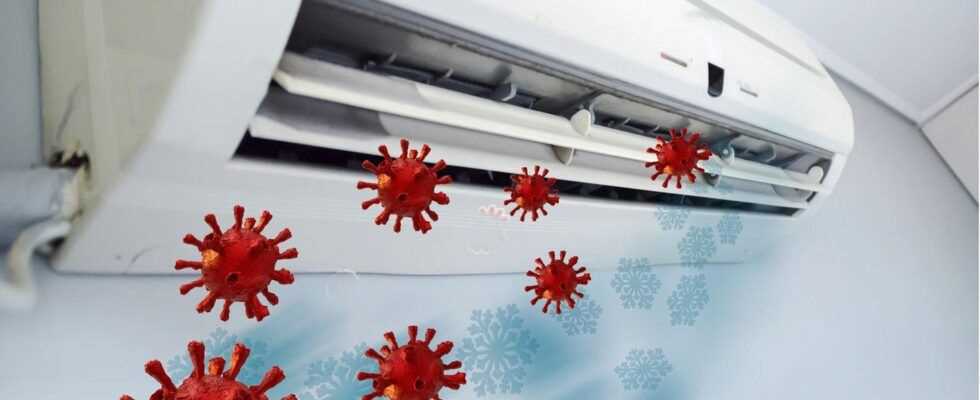Whether in the train, office or plane – the air conditioning blows everywhere. But can the ventilation systems spread the corona virus?
We only perceive them particularly in summer. She actually blows all the time – and almost everywhere. Air conditioners can be found in offices, shops, airplanes and restaurants. They should always provide fresh air. But what happens if you encounter corona viruses?
Many people have been asking themselves this question since the Corona scandal at the Tönnies slaughterhouse. A few weeks ago, over 1,000 employees became infected here very quickly. The reason for this should not only have been the critical working conditions, but also the ventilation of the slaughter rooms. To ensure cold temperatures, air is said to have been extracted, cooled down and blown back into the room, according to hygiene expert Martin Exner on "ZDF". The cases cause uncertainty: could air conditioning systems play a dangerous role in the spread of the corona virus?
Corona transmission through air conditioning systems "basically conceivable"
The Federal Office for the Environment considers it "basically conceivable that these viruses can be transmitted via ventilation systems". While it was not yet finally certain how long the new corona virus would remain in the air via aerosols, comparable viruses could be infectious for several hours. In the case of pure air recirculation systems, these could spread throughout the room.
The results of a study from China are similarly alarming. There, the ventilation of restaurants was examined after several guests contracted the corona virus. The result: systems without fresh air supply would pose a particular risk. These could simply distribute the air together with aerosols in the room. In Germany, however, such ventilation systems without fresh air are even banned in offices and restaurants, as reported by Quarks among others.
Good filters and fresh air reduce the risk of corona
The Federal Office for the Environment also gives the all-clear: In modern air conditioning and ventilation systems, the air flows should generally not meet. Means: Air is drawn in from the room, but only comes into contact with the supply air via a heat exchanger. If it is ensured that the sucked-in air is only discharged again in a filtered manner, there should be no risk of transmission of the corona virus. The prerequisite for this, however, is regular maintenance and inspection of the ventilation systems, the Federal Office for the Environment concludes.
So-called HEPA filters are particularly effective, which have so far been used primarily in airplanes and operating theaters in hospitals and can filter 99.9 percent of the air particles. But even in means of transportation such as the train, the ventilation systems are not a risk, as a spokesman assured the "ZDF". The air is dried and filtered, which is why the transfer of droplets is considered "extremely unlikely".
Finally, the transmission of the corona virus via an air conditioning or ventilation system is in principle possible. The risk can be kept low by correct maintenance, modern filters and fresh air supply. So you shouldn't simply switch off the air conditioning, after all the air would stand still and no exchange would take place.
In practice this means: Ventilate as much as possible! If you want to protect yourself, you should still prefer the outdoor area in restaurants and cafés. And even in closed rooms, such as in the office, ventilation should be carried out regularly. Open windows and doors can ensure constant air exchange.
Sources used: Federal Office for the Environment, Quarks, ZDF, RKI, Deutsche Apothekerzeitung
